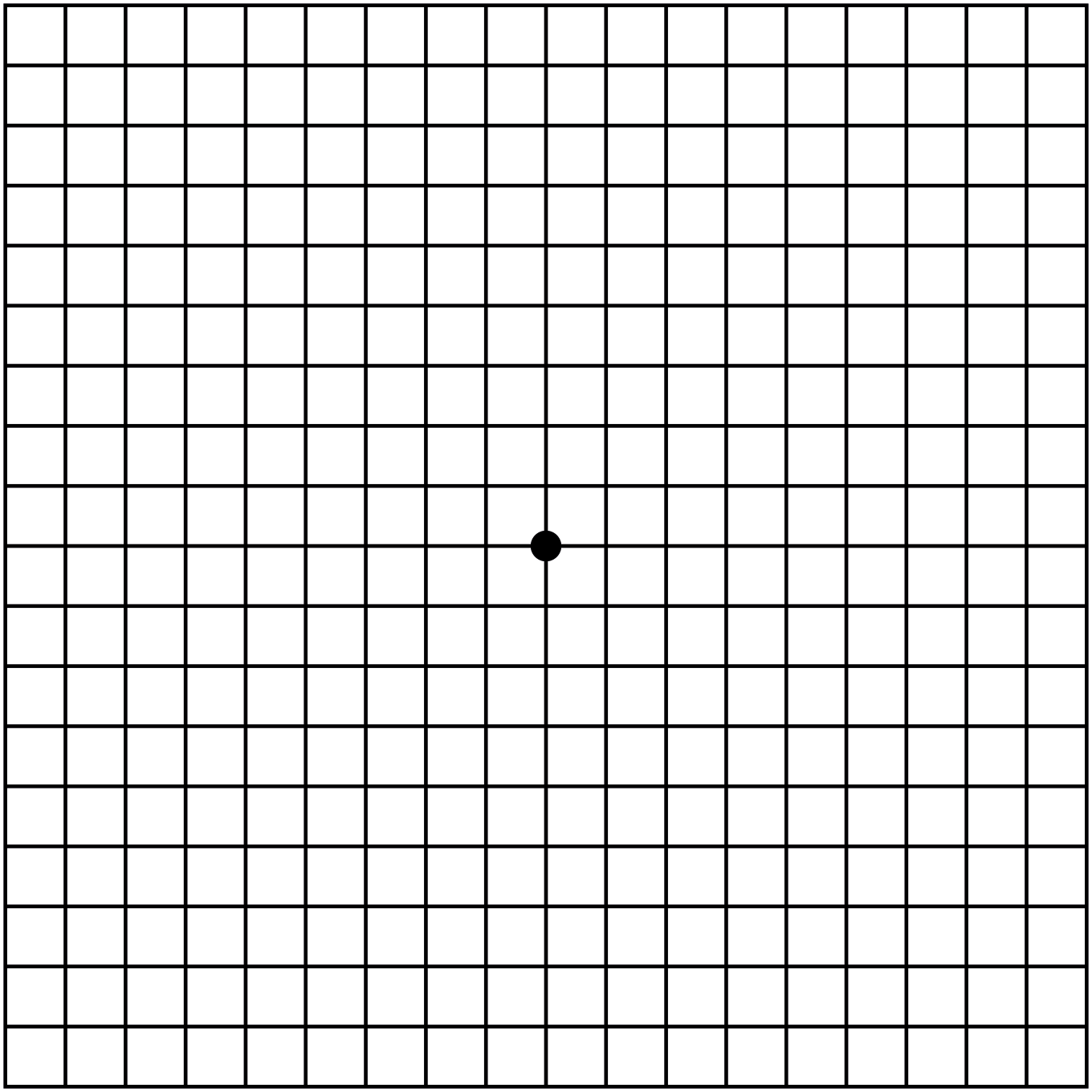Age-related macular degeneration (AMD) is the leading cause of vision loss in the UK but many people are unaware of the signs. It is especially common in those over the age of 65 and currently accounts for vision loss in 600,000 people in the UK.
What is AMD?
AMD affects your central vision, which is the vision you use when you’re looking straight ahead at something. It doesn’t affect your peripheral vision, so doesn’t cause a total loss of sight.
The condition affects the macula, the central part of your retina — a layer of tissue at the back of your eyes, which detects light and converts this to information that is sent to your brain. AMD results in blurred or distorted vision, as well as blind spots.
Diagnosing AMD early can help slow its progression and maintain your eyesight for longer. That’s why it’s important to test yourself for the early signs of AMD.
Testing yourself for AMD: the Amsler Grid
The Amsler Grid is commonly used by opticians and ophthalmologists (doctors who specialise in eye health) to detect vision problems caused by damage to the macula. It can help detect AMD, as well as other eye diseases.
It’s an easy test to perform yourself at home, particularly if you are at risk of AMD. However, it’s important to remember that self-testing should not be used instead of regular visits to the optician, as these are vital to maintaining good eye health.
If you take the test and it suggests that you have AMD or other issues with your vision, make an appointment with your optician for a complete eye exam.

How to use the Amsler Grid Test
The Amsler Grid test takes just a few minutes. Regular testing can help you spot potential vision issues early, which can make all the difference.
Print a copy of the grid provided and follow these steps:
- Make sure the lighting in the room is what you would normally use for reading ie not too dark or too bright
- If you usually wear glasses for reading, whether they are prescription or off-the-shelf, make sure you’re wearing them
- Hold the grid around 35-40cm away from your eyes
- Cup your hand over one eye to allow you to test each eye separately
- Focus your eye on the dot in the centre of the grid and answer these questions:
- Do any of the lines of the grid look distorted, wavy or blurred?
- Can you see all four corners and sides of the grid?
- Are there any dark or missing areas?
- Once you have tested one eye, perform the test again on your other eye
If you notice any issues while performing the test, you should make an appointment with an optician straight away. You should also mark any areas of the test that you are not seeing properly — do this on a separate grid for each eye and mark which grid is for your left eye and which is for your right eye if you have issues with both eyes. Take these marked-up grids with you to the optician.
You should repeat the test as often as instructed to by your optician or if you notice a change in your vision.
How is AMD treated?
Treating AMD depends on the type you are diagnosed with. There are two types of AMD — wet and dry.
Dry macular degeneration is the most common and is less severe. It tends to progress quite slowly and can affect one or both eyes. You may not notice it if it only affects one eye, as your other eye often compensates. This is why testing is important.
If you are diagnosed with dry macular degeneration, a few lifestyle changes can help slow its progression, including:
- Eating a balanced diet
- Getting treatment for other eye conditions
- Having an active lifestyle
- Having regular eye tests
- Maintaining a healthy weight
- Not smoking
Wet macular degeneration is less common and is caused by abnormal blood vessels leaking fluid or blood into the macula. Wet macular degeneration can cause a sudden vision change.
It is treated by injecting drugs into the affected eye every four to six weeks. This will not cure the condition but can help slow its progression.

